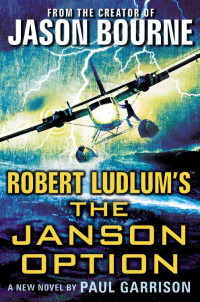The Bear by Claire Cameron
 Friday, March 28, 2014 at 9:01AM
Friday, March 28, 2014 at 9:01AM 
Published by Little, Brown and Company on February 11, 2014
The Bear was inspired by an actual event that occurred on Bates Island in Algonquin Park, Ontario. A bear attacked and killed two adult campers. In Claire Cameron's version of the story, the adults are camping with two children. Told from the point of view of one of the two kids, Anna Whyte, The Bear is a poignant and startling novel.
Writing from a child's perspective is no easy task. Childlike prose will rarely hold an adult reader's interest while eloquent prose seems artificial when it comes from a child. The trick, deftly executed here, is to show the reader an adult world from a child's eyes, assembling the simple language that a child would use in ungrammatically interesting sentences that reflect the imagination and confusion of a child's existence. In Anna's mind, a cooler named Coleman is her friend, an octopus helps her battle armies of fish, a bear is a big black dog, and how her father's tennis shoe ended up on a big chunk of meat is a puzzle.
The first section of The Bear is written with horrifying realism, making a compelling story all the more intense. The beauty of the story is that an adult reader, who understands what is happening, is more disturbed than Anna, who is too young to appreciate the gruesome and terrifying reality that surrounds her. Immaturity makes children vulnerable but it also protects them emotionally. Anna's immaturity, in turn, protects the reader from gut-wrenching descriptions of loss and pain.
The problem with opening a novel with such intensity is that once the reader's fear dissipates, the rest of the novel feels anticlimactic. There is, in fact, a lull in the middle section of The Bear. While the prose continues to capture a child's perspective, it is a less interesting account of two lost kids.
The novel's final section is stronger. It offers additional insight into a child's world, as a therapist who has no understanding of how Anna is processing reality is determined to help her work through feelings she doesn't have, perhaps doing more harm than good. The sadness inherent in the story as a whole is offset by the humor in Anna's relationship with her brother Stick and by the simple joy Anna experiences when hugging her teddy bear or playing with a neighbor's dog. While it is clear that, as Anna gets older and begins to understand her memories in a different way, her experience on the island will always trouble her, it is also clear that children are resilient and adaptive. At the same time, the epilog (set 20 years later) is both sweet and a little heartbreaking. The Bear isn't always an easy novel to read but it is a novel worth reading.
RECOMMENDED


